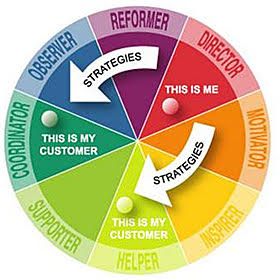Analytical Observation: The Benefits of People Watching
Many of us enjoy people watching- we like to see how people live, how they interact, and how they deal with everyday situations. The same factors that make people watching so intriguing to many of us can also make office environments that much more interesting as well. Observers, or the Cool Blue thinkers, rely on better than average observational skills and discipline to get things done both in their personal and professional lives.
Observers are very rational. They rely on facts and logic to make sense of the world and to make sense of the tasks they are given in the workplace. They depend on consistency and offer deep insights into the characteristics and behavior of the people around them.
The strengths of Observers
Observers are:
- Precise
- Cautious
- Conscientious
They are also:
- Worriers
- Slow to act
- Avoidant
Observers are observant of themselves and the people around them. They are good at discerning other peoples’ motivations and strengths, in addition to their weaknesses. Observers have a tendency to hire individuals who are also observers, which isn’t always beneficial. Observers are critical to a fault and, although they may be correct, often miss answer because they are afraid to be wrong. Observers are very fact oriented, but may hesitate to express their feelings or thoughts as an employee or if they are in a leadership position.
Working with an Observer
Working with an Observer as a coworker or as your boss can come with its benefits and challenges. Observers are independent and often prefer to work on their own, but create functional and interpersonal work environments. Observers are logical and seek to influence others using facts and proof, which may make them come across as uncaring or impersonal at times. However, they value others’ opinions and are typically very engaging in the workplace.
Observers, like many of us, feel pressured when they are rushed. They crave consistency and will return that consistency to their employees and coworkers when given the chance. Observers resist change, but can be brought around to the idea of new changes based on logical reasoning. When they feel like they don’t have a handle on a situation they can worry, but it is rarely about their jobs or reputation. Observers worry about how others will see them, what they are being judged on, and how they are perceived by those they respect the most.
Working with Observers is an exercise in patience and logic. Observers are stretched by social interactions and must remember that a lot can be learned when they put themselves in relevant social situations.
If you would like further help in identifying yourself or someone you know who may be an observer, schedule me, Scott Schwefel, as your keynote speaker. I will come to your group and address the differences in personalities in a truthful, fun, and easy-to-understand way. Follow me on Facebook, LinkedIn, and Twitter to share my blogs with the color energies you work with!






